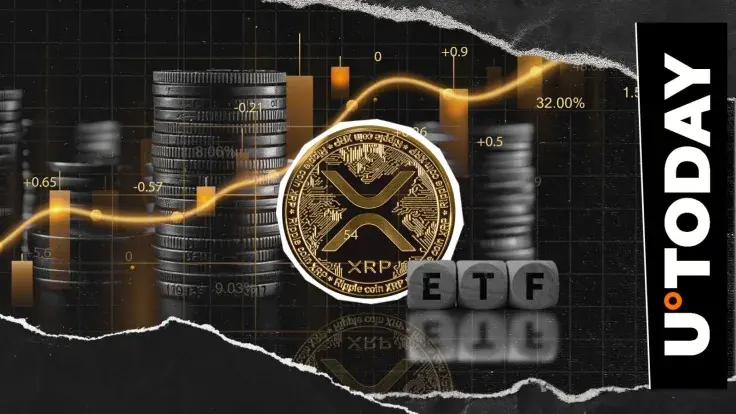Nigeria Dominates African Crypto Scene with Massive $205 Billion Surge

Sub-Saharan Africa (SSA) has emerged as one of the fastest-growing cryptocurrency regions globally, according to the latest Geography of Cryptocurrency report from Chainalysis. This significant growth presents a paradox, as Nigeria, the region's largest crypto market, experienced a decline from second to sixth place in the global adoption index. Despite this shift in ranking, Nigeria's activity played a crucial role in powering SSA to record growth, with the region receiving over $205 billion in on-chain value between July 2024 and June 2025. This represents a staggering 52% year-on-year increase, positioning Sub-Saharan Africa as the third-fastest-growing crypto region worldwide, just behind Asia-Pacific and Latin America.
Nigeria's apparent slip in Chainalysis’ Global Crypto Adoption Index, which ranks 151 countries based on on-chain activity weighted by population and purchasing power, might initially seem concerning. India now leads, followed by the US, Pakistan, Vietnam, and Brazil. However, Nigeria's drop is not indicative of stagnation. The country still commanded a substantial $92.1 billion in on-chain value, accounting for nearly half of Sub-Saharan Africa’s total. The change in ranking is primarily attributed to a tweaked methodology by Chainalysis, which removed the peer-to-peer (P2P) exchange sub-index due to a global decline in P2P activity and the closure of platforms like LocalBitcoins, a segment where Nigeria previously excelled. Concurrently, other markets, such as India and the US, scaled up their institutional and retail activity at a faster pace, making Nigeria’s situation less a fall and more a reflection of others sprinting ahead in a maturing global race.
Nigeria remains a formidable force in the crypto space. Its $92.1 billion haul significantly overshadows South Africa’s, which is the region’s second-largest player. Bitcoin dominates the Nigerian market, making up 89% of fiat-to-crypto purchases, serving as a crucial hedge against the naira’s volatility. Stablecoins like USDT, representing 7% of transactions, are primarily used for dollar-pegged trades in informal markets. A significant naira devaluation in March 2025 triggered a surge in activity, with on-chain volume reaching $25 billion in a single month as Nigerians flocked to centralized exchanges to protect their wealth against inflation.
Sub-Saharan Africa's retail-driven crypto revolution is particularly striking. The region's 52% growth surpasses most global averages, even though its $205 billion in on-chain value makes it the smallest crypto economy compared to Asia-Pacific’s $2.36 trillion (69% growth) or Latin America’s 63% surge. What truly differentiates SSA is its retail heartbeat: over 8% of transfers were under $10,000, exceeding the global 6% average. This indicates that crypto is being used by everyday individuals for real-world needs, such as remittances, bill payments, and small-scale merchant transactions, rather than just large-scale Wall Street-style trading.
Stablecoins, now accounting for 43% of SSA’s volume, act as a vital lifeline for remittances, drastically reducing costs compared to traditional channels' 7.9% fees. Bitcoin, on the other hand, serves as a savings vehicle, preserving value amidst currency instability. Institutional activity is also gradually increasing, with Nigeria and South Africa leading in high-value stablecoin flows for B2B trade, especially with partners in Asia and the Middle East. Sectors like energy and merchant services are leveraging crypto to settle million-dollar deals more efficiently, bypassing traditional bureaucratic hurdles.
A deeper look into Nigeria’s crypto landscape reveals a raw, chaotic, yet profoundly human scene. With a population exceeding 200 million and a tech-savvy youth demographic, crypto adoption is deeply entrenched. The report highlights that 85% of transfers are under $1 million, underscoring the strong retail participation. Economic hardship often pushes people towards crypto; for instance, when the naira crashed in March 2025, centralized exchanges saw a flood of activity from households and businesses seeking to safeguard their wealth. The Central Bank of Nigeria (CBN) has adapted its stance, launching cNGN, a naira-pegged stablecoin, in 2025, after years of initial hostility, including a 2021 crypto ban. Furthermore, the SEC’s 2025 Investment and Securities Act now classifies digital assets as securities, providing some regulatory clarity. However, challenges persist, including a rise in fraud, as highlighted by Chainalysis’ 2025 Crypto Crime Report which flagged $178 billion in illicit flows globally over five years. Access for the significant unbanked population also remains a key issue.
Beyond Nigeria, South Africa also plays a significant role. Its $30 billion in on-chain value, while less than Nigeria’s, represents a sophisticated market. Bitcoin accounts for 74% of purchases, with XRP and ETH indicating more speculative trading. With numerous licensed virtual asset providers and banks like Absa developing custody solutions, South Africa is emerging as an institutional crypto hub. Other SSA nations are rapidly gaining traction: Ethiopia entered the global top 20 at 12th place, driven by stablecoin usage amidst currency woes; Kenya’s P2P remittances soared by 140%; and Ghana’s retail scene is flourishing. Across SSA, DeFi is growing, and altcoins are gradually catching up to Bitcoin’s dominance.
Three primary forces fuel SSA’s crypto boom. Firstly, economic instability, characterized by inflation and devaluation, makes crypto a vital hedge and a dollar proxy. Secondly, financial exclusion drives adoption, as mobile-based crypto applications offer a game-changer for millions of unbanked individuals. Thirdly, innovation, particularly evident in thriving off-chain P2P trades on platforms like WhatsApp and Telegram, and stablecoins powering cross-border commerce. Global connections amplify this trend, with SSA’s trade with Asia and the MENA region increasingly relying on crypto for speed and cost efficiency. Nigeria's 89% Bitcoin share emphasizes savings over speculation, distinguishing it from Western markets that often chase memecoins. SSA’s 52% growth is not a mere coincidence but signifies strong momentum. While Nigeria’s ranking slip is a temporary setback, clearer regulations could propel its resurgence. Stablecoins are expected to continue their ascent, and DeFi could unlock new use cases. The entry of Ethiopia and Yemen into the top 20 signals a broadening base of crypto adoption across the continent. For Nigeria, the crucial challenge lies in balancing innovation with crime prevention. The country’s increasingly friendly stance and the SEC’s regular engagement with industry players offer promising signs for the future. As cryptocurrency becomes more deeply woven into Sub-Saharan Africa’s economic fabric, it represents not just a market but a transformative movement.
You may also like...
Weigh-In Chaos Erupts as Crawford vs Canelo Super-Fight Explodes!

Boxing fans are eagerly anticipating the super-middleweight clash between Saul 'Canelo' Alvarez and Terence Crawford in ...
Arsenal Dominates Forest 3-0 in Postecoglou's Nightmare Debut, Odegaard Injured!

Arsenal climbed to the top of the Premier League with a convincing 3-0 victory over Nottingham Forest, spearheaded by Ma...
Latin Music Sensation Trueno Joins Forces with Gorillaz on Epic Tour

This week in Latin music saw several artists making headlines, from Peso Pluma's historic role as CFDA's first Mexican a...
Property Peril: Sarah Beeny's Desperate Battle for 'Downton Abbey' Dream Home

TV presenter Sarah Beeny awaits a crucial update on the demolition order for her £3million Somerset home. Built without ...
Royal Rift Widens: Prince Harry's Bold Stand After Surprise Warzone Visit

Prince Harry recently completed a four-day visit to Britain, fulfilling charitable duties and meeting privately with Kin...
Culinary Calamity: Hilda Baci's Record Pot Shatters at Weigh-in

Nigerian chef Hilda Baci's attempt to set a new Guinness World Record for the largest pot of jollof rice faced a dramati...
Shockwave: Akon's 29-Year Marriage Ends in Divorce

Global music star Akon faces a divorce filing from his wife, Tomeka Thiam, after nearly three decades of marriage. Thiam...
Supermom Sue Radford Stuns With Two-Stone Weight Loss After Epic Florida Family Adventures

Sue Radford, mum of Britain's biggest family, has proudly revealed her two-stone weight loss, embracing a healthier and ...




